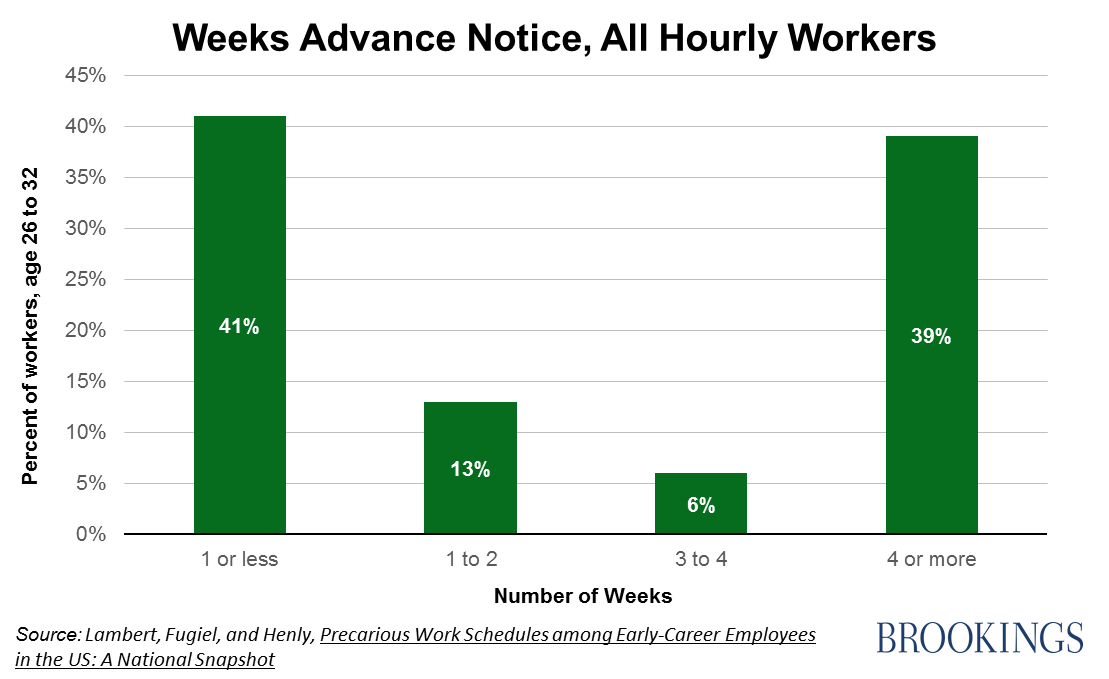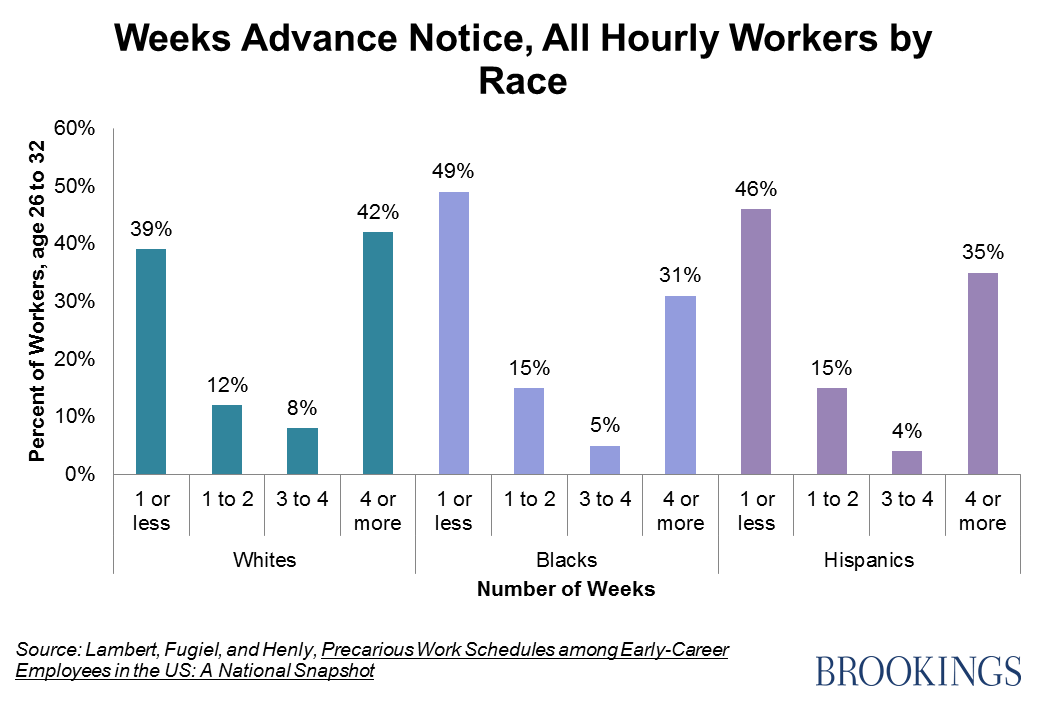It usually takes planning to move out of poverty. That’s doubly true for families with children; parents have to arrange childcare, doctor’s appointments and extracurriculars on top of work, job interviews, and adult education if they want to get ahead. But the rise of “just-in-time labor management” has made that increasingly difficult, especially for mothers and fathers who work hourly.
Many American Workers Have Unpredictable Hours
Fifty-six percent of men and 61 percent of women in the workforce are paid by the hour, many in industries like retail and food service. A recent series of articles by the New York Times gave a snapshot of this new reality: computer algorithms crunch real-time sales data, which managers use to call in staff on a moment’s notice–or send them home if business slows.
Susan Lambert, with her colleagues at the University of Chicago, used the National Longitudinal Survey of Youth (NLSY) to study the prevalence of last-minute scheduling among a representative sample of 26 to 32-year-olds. They find that 41% of hourly workers learn their schedules less than a week in advance—more than know at least a month in advance. Half of hourly workers have no control over their schedules. Among the 74% of workers who report weekly fluctuations in hours, average hours varied by 49% of their “usual” weekly hours. A 10-hour week can follow a 30-hour week.
There are differences across demographic groups, and volatility is especially acute among part-time, retail, and food-service jobs.
Hourly food-service workers in the NLSY sample saw 68% swings in weekly hours; 39% have no control over their schedules and 64% learn their schedule less than a week in advance. On average, women with part-time jobs experience 88% fluctuations in their hours; 38% of these women have no say in their scheduling and 41% receive less than a week notice.
Unpredictable Hours Make Upward Mobility Even Harder
Nearly half of the hourly workers in the study have kids. “Just-in-time employment” may make business models more efficient, but it may also create uncertainty that undermines the best laid plans of low-income Americans. Surveys by Lambert and others have shown that unpredictable hours exacerbate stress, harm health, and propagate damaging work-life conflicts.
Policymakers have some ideas about stabilizing hourly employees’ schedules, some of which have been put into practice. San Francisco just passed a bill requiring employers to set schedules at least two weeks in advance; Congressional Democrats have proposed similar legislation. Some business-owners oppose these efforts, and successful legislation will have to balance the interests of employees and firms. But one thing is clear: working to make tomorrow better is hard, when today is so uncertain.
The Brookings Institution is committed to quality, independence, and impact.
We are supported by a diverse array of funders. In line with our values and policies, each Brookings publication represents the sole views of its author(s).






Commentary
Do Unpredictable Hours Undermine Upward Mobility?
December 11, 2014